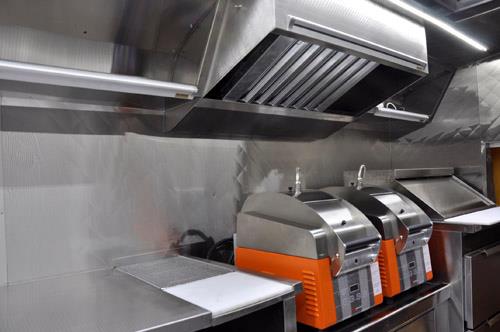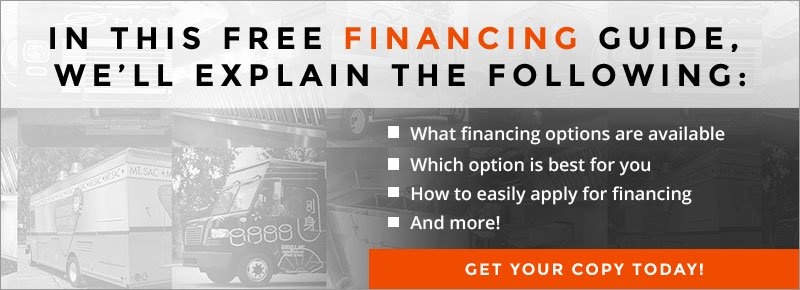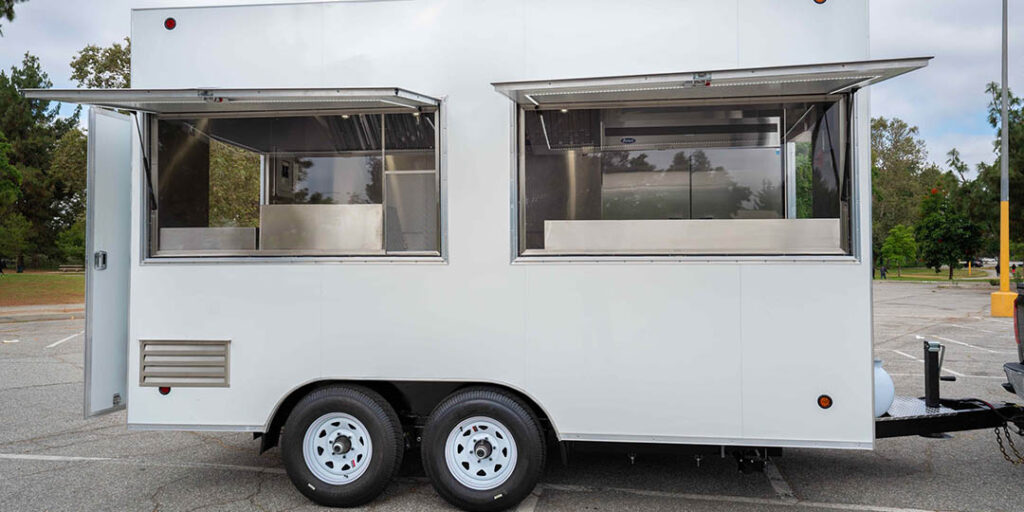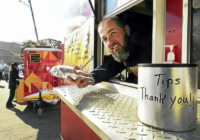The food truck business has a reputation for presenting a cheap way to turn a huge profit in the world of foodservice. In fact, many individuals who research the steps it takes to open a restaurant will turn tail and run from the millions it can take to start up and stay profitable. Though starting a food truck business and maintaining it profitable requires significantly less money, there are certain considerations you should take to heart while setting realistic expectations.
Good Food Trucks can Make Buku Bucks!
Before we delve into financial investment expectations of starting a food truck business and maintaining one in a thriving market, let’s calm your nerves: food trucks make buku bucks! According to Mobile Cuisine, the average full-time food truck in America grossed $300,000.
If your dreams are exceptionally big, look at Van Leeuwen Ice Cream. Two brothers started this food truck on the streets of New York City with $50,000 invested by friends and family. They never made ice cream before but decided to offer something outside of the norm: organic artisanal flavors like vegan mint chocolate chip and honeycomb.
In year one they made $400,000. In year two they made over $1,000,000. With a great food truck design, all the branding in place, a good product, and ongoing growth Van Leeuwen now runs roughly 4,000 trucks nationwide making $870 million between 2011 and 2016. If two guys new to the business can create an empire, why can’t you create a similar story of your own?
Investing in a Custom Food Truck
It goes without saying that your food truck will be the most costly item in your startup. A quote from a reputable food truck builder that runs a full-service manufacturing shop will likely hover between $80K – $100K, complete with new equipment (generator, refrigeration, stove, etc), branded vinyl wrap, and other standards. Then you have chop shop-style food truck builders who take old vehicle platforms and retrofit them to fulfill the purpose of a food truck. These can cost around $50,000, but, be warned: these vehicles see their fair share of disasters and often rack up thousands of dollars in ongoing repairs while causing the business to lose thousands more for being off the streets. Your best bet is to opt for a new truck with a clean bill of health that will only need routine maintenance.
Financing Your New Food Truck
There are several ways you can finance a food truck. These include:
- Private loan from family
- Investment opportunities with friends and family
- Small business bank loan
- Micro loan
- Crowdsourcing
If you plan on making your food truck a family business, then taking on investors from your family tree would be appropriate, as would borrowing money with a payback plan that may or may not give them interest. A small business bank loan is normally the most ideal. Just be aware that these are typically given to those with good credit investing in new food trucks (less risk for the bank). Taking out a microloan can be an option in addition to a private loan, as their max limit is $50,000. Finally, crowdsourcing can potentially pay for your truck if you know how to reach the right people. Sites like Go Fund Me help entrepreneurs starting a food truck business, but you need to have a compelling reason why strangers would want to send you money. Are you planning on donating proceeds to a local community charity? Are you a veteran? Discover how your food truck will bring value to others, why people would want to help you, and see what kind of love you get back.
 Food Truck Licensing and Permits
Food Truck Licensing and Permits
Regulations vary from one city to the next. In some cases you may need to get a commissary; costs run from $400 to $800 a month based on the provided services and location. You will want to find out if your permit allows you to sell on city streets, in alleyways, at parks, by the beach, at fairgrounds, or at festivals.
Insuring a Food Truck
Insurance can run from $2000 to $4000 per year based on what percentage of the year you will be operating your truck, where you will operate it, and the level of coverage you seek. Coverage types can include mechanical / equipment only. You can also include your product inventory (if the refrigeration breaks down food damages would be included in coverage), insure employees (health/injury), external damage to the vehicle, and there are even levels of business insurance designed to help cover legal fees if you get sued for feeding someone bad sushi or you run over a guy’s foot.
Create a Food Truck Cost Spreadsheet
There will be other items that will incur expenses that you may not keep front of mind. But these all add up. Create a food truck cost spreadsheet detailing every item you will need from the name tag on your shirt to paper plates. Then determine inventory needs and plan your annual budget accordingly. We surveyed 500 food trucks and here are some common averages to consider:
- Register / POS – $200 – $1000
- Website (one time build) free – $5000
- Ongoing SEO / digital marketing – free – $2000 per month
- Social media marketing – free – $1000 per month
- Uniforms – t-shirts – 0 – $1000
- Paper goods (napkins, plates, etc) $200 – $400
- Pots and pans – $500 to $2000
- Fire extinguisher – $100 – $300
- Labor – ?
- Fuel $500 and up
- Menus (chalm to LCD screens) $500 – $2000
- Internet / phone – $800 – $1400 per year
- Maintenance – $1000
Determine what costs are one-time and which are ongoing. Set a bi-quarterly review of these to look for more cost-effective solutions.
Product Inventory Expenses
If you don’t plan accordingly, you can potentially waste thousands of dollars a year throwing away unserved food. Use this equation to calculate product inventory expenses with a cost-saving objective:
Average daily food cost = food cost ÷ number of days in the period.
Example: If your food cost for a 30 day period is $15,000 then your average daily food cost is $15,000 ÷ 30 days = $500.
Invest, Plan, and Test
Once you invest in a high-quality custom food truck you will have very little expenses compared to the millions you would incur starting a restaurant. Be sure to plan ahead for all the minor costs that will come, and your potential for grossing a hefty ROI will be silver-lined.







